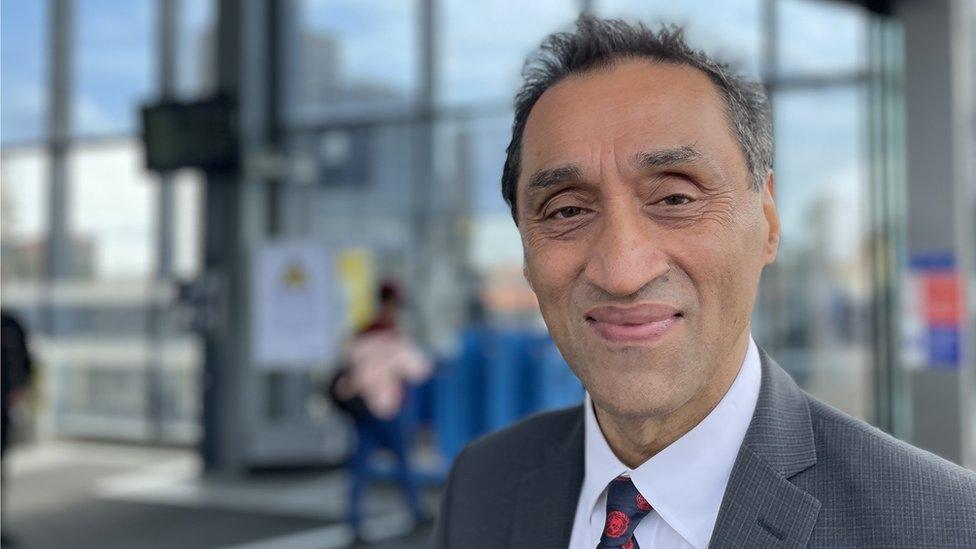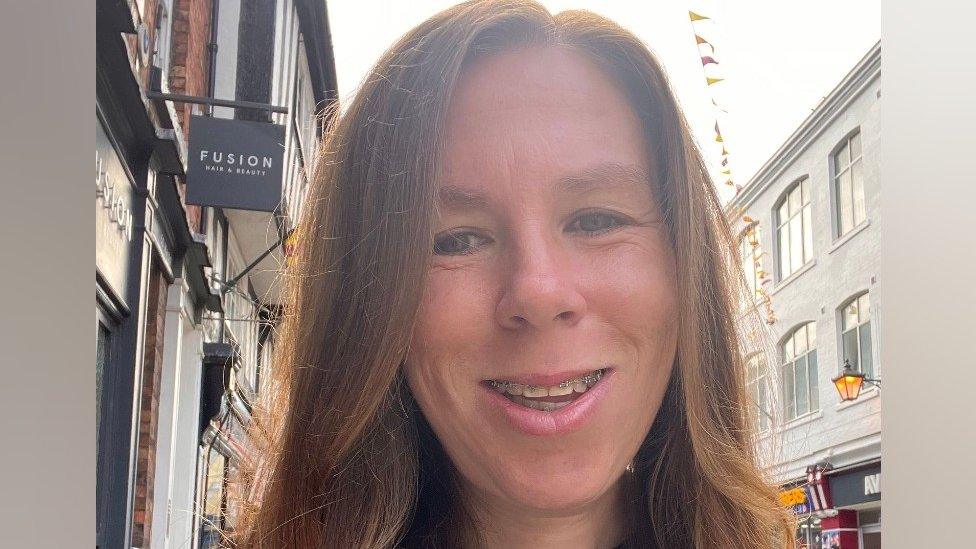Health services for eating disorders overrun - report
- Published

London Assembly's health chair Dr Onkar Sahota said he was worried about teenagers engaging with pro-eating disorder online communities
Health services for Londoners with eating disorders are struggling to cope with demand, a new report warns.
Data from London's mental health trusts shows adult referrals have increased by 56% - from 3,000 to nearly 8,000 - in the last six years
Child and adolescent referrals increased by 158%, from 1,400 to 4,000, in the same time period.
The report has been compiled by the London Assembly's health committee.
It has made 12 recommendations to London Mayor Sadiq Khan and City Hall officers, which include assessing other physical and mental health indicators as well as just patients' bodyweight as per their BMI.
The mayor's office said that while Mr Khan is not responsible for health services in London, he meets regularly with NHS officials and will "carefully consider" the report's findings.
The report found that NHS funding for eating disorder services is at its highest ever level.
One consultant clinical psychologist told the committee that "almost all of the eating disorder services in London do not have the staffing levels available to safely provide the care required".
The NHS has a target of ensuring that, from their first contact with a designated healthcare professional, 95% of those aged under 18 start treatment within four weeks. For urgent cases, the target is for 95% to start treatment within one week.

If you've been affected by eating disorders, help and support is available via the BBC Action Line.

But among those urgent cases, the proportion who got treatment within one week in 2022/23 was only 80%. The report warns that "this data should be treated with caution due to a cyber-attack which impacted reporting for this year".
The figure for the previous year was even worse however, at 64%. Both are down from the 83% of cases starting treatment within a week in 2016/17.
The report also warns: "Some services are left to prioritise only the most severely ill people and are reportedly going against clinical guidance by using body mass index (BMI) as a threshold for determining who should and shouldn't have access to services."
The committee is said to have heard a range of evidence to suggest that "significant capacity pressures" have meant BMI or body weight is sometimes being used to decide who receives "priority access to services".
The mayor is recommended to lobby NHS England to ensure this is not happening.
The committee's Labour chair, Dr Onkar Sahota, said: "We must ensure that the appropriate support is available to people on waiting lists who are at higher risk.
"I am particularly concerned to hear that some young people on waiting lists are engaging [primarily online] with 'pro-eating disorder communities' which may encourage and accentuate existing eating disorders."
Responding, a spokesman for Mr Khan said: "As mayor, he is not responsible for health and care services in London as this rests with national government, but he meets regularly with NHS partners to champion and challenge them to provide the high-quality care Londoners deserve, including improved and equal provision of services. He will carefully consider the findings of this report."

Listen to the best of BBC Radio London on Sounds and follow BBC London on Facebook, external, X, external and Instagram, external. Send your story ideas to hello.bbclondon@bbc.co.uk
Related topics
- Published1 March 2024

- Published15 November 2023
